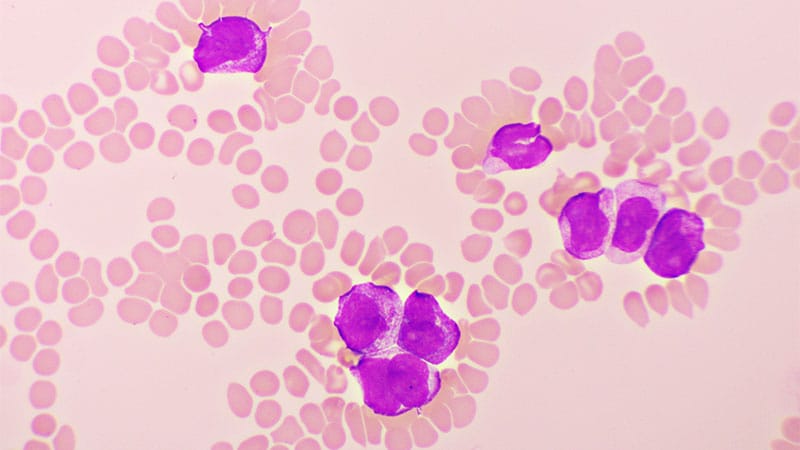With the increased use of haploidentical haematopoietic cell transplantation (HCT), there is renewed interest in the use of donor lymphocytes to either treat or prevent disease leukaemia relapse following allogeneic haematopoietic cell transplantation.
A new consensus paper, commissioned by the Acute Leukemia Working Party of the European Society for Blood and Marrow Transplantation (EBMT), summarises the available evidence on the use of donor lymphocyte infusion (DLI) from haploidentical donor and provides recommendations on its therapeutic, pre-emptive and prophylactic use in clinical practice.
The consensus paper concludes the following:
Unmanipulated DLI from a haploidentical donor appears to be relatively safe and reasonably effective in patients who relapse after a T-cell replete haploidentical HCT.
Patients given haploidentical DLI should be enrolled in a clinical trial whenever possible, as data regarding optimal cell dose, timing, and role of concurrent systemic therapies with haploidentical DLI is limited.
Information about the application of unmanipulated DLIs after T-cell depleted transplantation is limited; caution is recommended regarding dosing.
The risk of graft-vs-host disease (GVHD) after unmanipulated DLI in the haploidentical HCT/post-transplant cyclophosphamide (PTC) setting is comparable to an unmanipulated DLI from an HLA-matched donor.
Cytoreductive therapy prior to DLI from a haploidentical donor should be considered in patients with a haematologic relapse after haploidentical HCT.
Pre-emptive haploidentical DLI may have a role in reducing disease relapse in patients with persistent minimal residual disease (MRD) or mixed-donor chimerism after haploidentical HCT; however, more studies are needed.
Patients with high-risk myeloid malignancies may benefit from a prophylactic haploidentical DLI, which should ideally be employed in the setting of a clinical trial.



